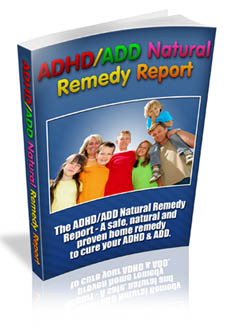Boys With ADD
"Thinking About Tomorrow" Game. During hang-out times, both Mark's mentor and his parents simply talked with him about whatever was on his mind. They also did the "Thinking About Tomorrow" game in which he anticipated situations that would be hard, others that would be easy, and situations that he enjoyed and didn't enjoy, such as subjects he felt were hard. We asked what he routinely did when he had those feelings and how that made other people feel and what alternatives he had. He had to brainstorm and come up with the solutions himself.
We explored feelings that were harder for him - angry feelings, humiliating feelings. We would ask, "Well, are there other feelings, times when you don't feel just sad or happy?" to get him to describe his feelings with a little more subtlety. We made suggestions like, "Do you ever get a little mad - just a teeny, teeny bit?" and he slowly began acknowledging angry feelings and even feeling embarrassed at times or scared, which was hard for him to admit. He didn't like to talk about feeling scared. In these discussions with Morn, Dad, and the mentor, Mark expanded his range of feelings and his ability to reflect on them. Boys With ADD
As his program continued, Mark began to feel differently about himself and his "bad brain." Perhaps most important, we found something that Mark was really good at, in which he felt his brain did well. His skill with magic tricks was evident and deepened as he made progress in other areas. As he learned to sequence better, to carry out a series of steps, he could do more complicated tricks. We worked on his fine motor skills by showing him card tricks that required being dexterous with his fingers, which he really enjoyed. His parents enrolled him in a magic class, where he met other kids who loved magic, too. Magic became his "claim to fame," and he even performed for his school class.
In talking with Mark over time, we helped him identify the feelings he felt in his body just before he was about to get fidgety and walk around the room or bug another child next to him or poke someone. So what he identified as "my brain made me do it" and "my brain is bad" became a description of feelings. By reflecting on these feelings, he gained more control. During our discussions, Mark's self-awareness kept strengthening. Eventually, the reasons for his little smirk in the first session became evident, as well as the pleasure he felt when his magic tricks left other people feeling baffled and "dumb." After about eight months in the program, now more skilled in describing his feelings, Mark could see that it was fun getting other people to feel like their brains didn't work right.
As Mark did these things, he came to identify the feelings in his body as being normal and natural. Instead of feeling overwhelmed by the tasks that were hard for him, he became able to identify what he did well, like math when he could concentrate and practice it. He had a little harder time with reading comprehension, but he learned to persevere. With a little more diligence and practice, as he identified things that he was good at and not so good at, what his dad was good at and not so good at, what his mom was good at and not so good at, he began to see that like everyone, there were things that "my brain is good at and not so good at." Boys With ADD
Gradually, Mark began feeling better about himself, and these feelings spilled over into the areas in which he had to work harder. As his high school mentor worked with him on balance, throwing, catching, and kicking, Mark became a better soccer player on the neighborhood soccer team. He also enrolled in Little League baseball. He became a better student. These real accomplishments in turn made him feel even better about himself. Dad's more supportive approach and the work on his blackboard maps were also a big help.
One day he told me, about a year after he started the program, "You know, my brain works better now. I can do more things." The whole family was functioning better, Mom was less anxious because she was feeling more positive about Mark, and Dad and Mark enjoyed doing special projects on the weekends. Mark was no longer identified as an ADHD kid by his teachers or by himself or by his family. He could calm down, focus, and attend, and, most important, he now saw himself in a competent and optimistic light. To find out more, you can check out Boys With ADD.


